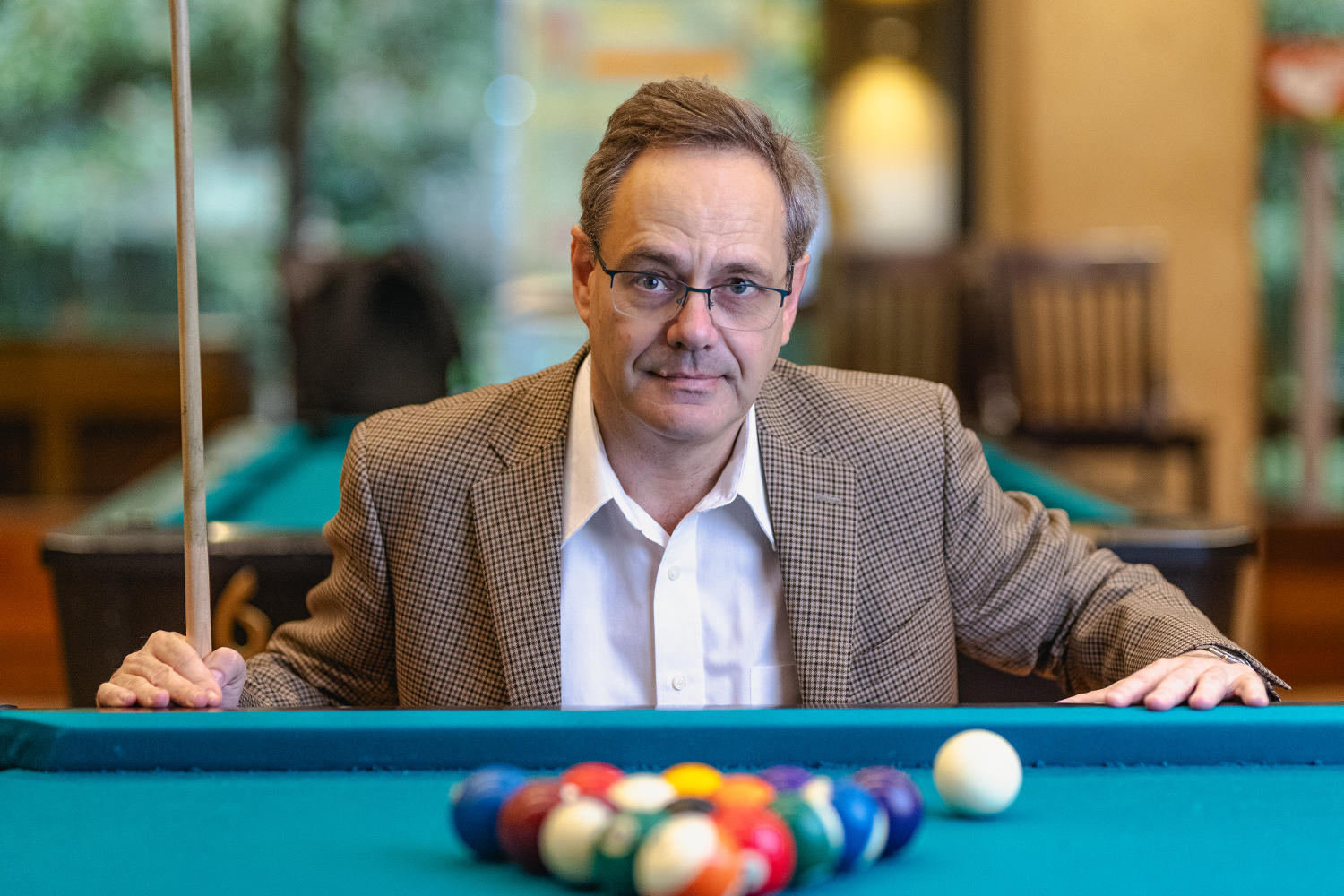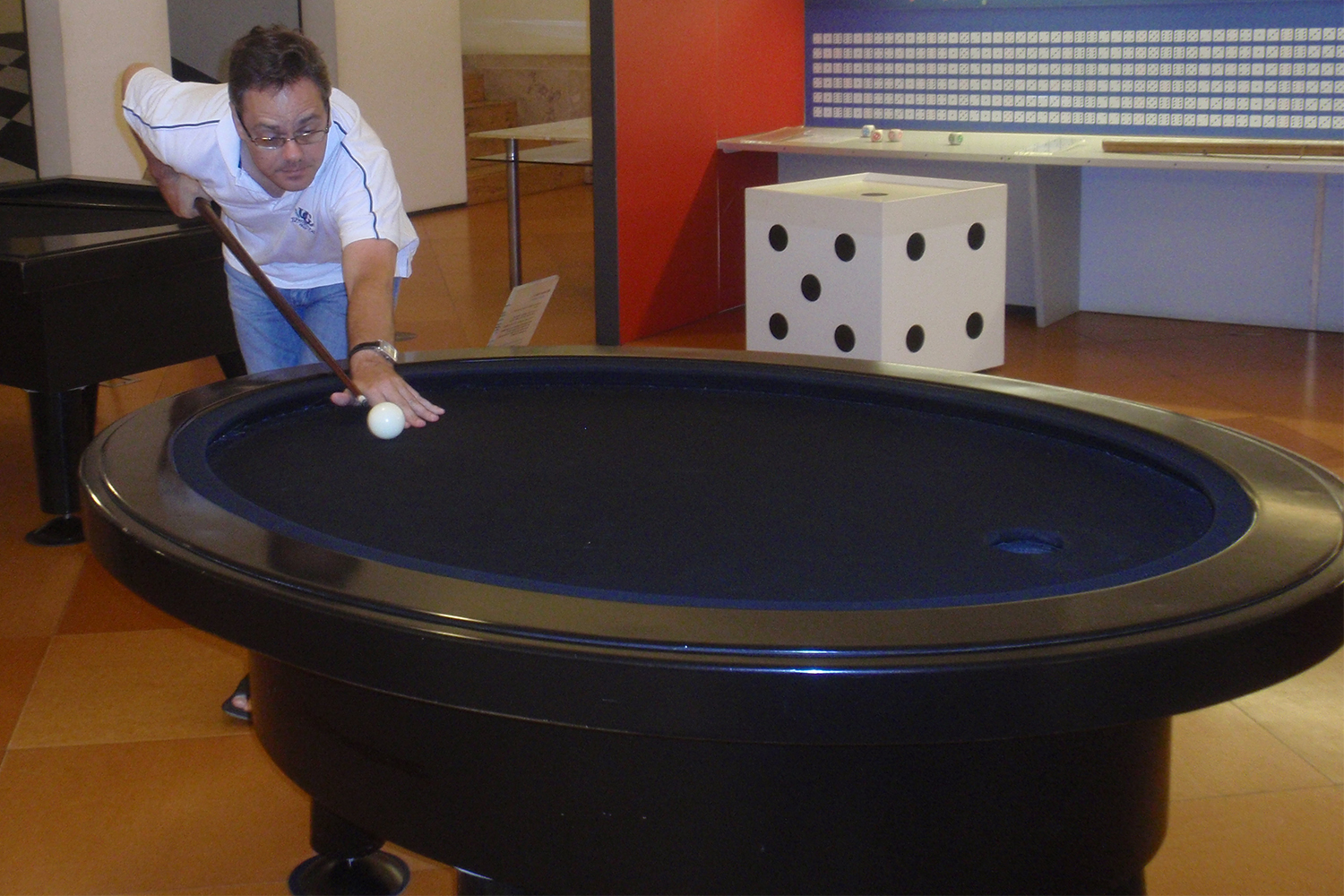Mathematical Billiards Expert Covers All the Angles — in Theory
11.01.2023
 Dr. Vladimir Dragovic
Dr. Vladimir Dragovic
At The University of Texas at Dallas, faculty members who specialize in theoretical mathematics add an important dimension to the University’s research portfolio.
Dr. Vladimir Dragovic, professor and head of mathematical sciences in the School of Natural Sciences and Mathematics, is an expert in mathematical billiards. It’s a field that has applications in physics and engineering, but Dragovic is drawn to the beauty of theory.
Dragovic was invited to be a featured course lecturer this fall at a 10-week program on mathematical billiards and applications hosted by the Simons Center for Geometry and Physics at Stony Brook University. During the program, researchers from around the world present a series of lectures and a workshop on billiard-type dynamics.
In the physical world, billiards and its cousin, pool, are played on a flat, typically rectangular surface, with several balls that are contained within the table’s 2D boundary. Game play includes using the tip of a cue to tap a designated ball, which travels in a line to carom off the walls of the table and/or collide with other balls.
While the principles are the same in mathematical billiards, the theoretical game can take on exotic configurations. Balls become point particles that bounce, or reflect, off boundary walls, while the table can be shaped like an oval, triangle or hexagon. The table surface can be non-flat. And the balls can move within boundaries expanded to three or more dimensions, such as spheres and ellipsoids.
“Mathematical billiards can be a model for many physical systems,” Dragovic said.
For example, in gas dynamics, as in billiards, particles collide and reflect off boundaries and one another. The theory also describes how light rays – which reflect like balls bouncing off a wall – illuminate mirrored rooms of various shapes. Other applications include acoustics, quantum physics, cosmology, particles moving inside nanodevices and computer graphics.
 In 2008, Dr. Vladimir Dragovic visited an exhibition on “living mathematics” at the Pavilion of Knowledge Centro Ciência Viva in Lisbon, Portugal, that featured billiard tables in unusual shapes. He demonstrated his skills on an elliptical table.
In 2008, Dr. Vladimir Dragovic visited an exhibition on “living mathematics” at the Pavilion of Knowledge Centro Ciência Viva in Lisbon, Portugal, that featured billiard tables in unusual shapes. He demonstrated his skills on an elliptical table.
Dragovic’s research focuses on elliptical billiards in 2D planes as well as their analogs in higher dimensional spaces. In recent years, he has combined ideas from this line of work with several different theoretical areas, including approximation theory, extremal polynomials, algebraic geometry, harmonic analysis and combinatorics, in unexpected ways that have led to new results and insights in each field. His work has been funded continuously over the last two decades by various agencies, including the National Science Foundation and the Simons Foundation, as well as the International Discovery Award from the Australian Research Council. It has led to several publications in journals such as Advances in Mathematics, Bulletin of the American Mathematical Society and Communications in Mathematical Physics.
“Mathematical billiards is a field where it is easy to pose questions but difficult to answer them,” Dragovic said. “For example, consider a triangular-shaped boundary for billiards. It is relatively easy to show that in each acute and right triangle there is a periodic trajectory, which means a moving ball will carom off the walls but will eventually return to its starting point.
“But if you ask whether there is a periodic trajectory in an obtuse triangle with an angle greater than 100 degrees, this is still an open question. Whether it is applied or theoretical, mathematics is important and fascinating in all its beauty and manifestations.”
Growing up in Belgrade, Serbia, and as a student at the University of Belgrade, Dragovic and his friends often played miniature golf and sometimes pool. He said engaging in these types of geometrical challenges with a mathematician shouldn’t take the fun out of the game.
“Being an expert in mathematics and being an expert in pool or mini golf are completely different things – being good in one does not mean you are good in the other,” Dragovic said. “On the other hand, to be an expert in these real games requires hours and hours of practice, just as being an expert in mathematics requires years and years of a different kind of practice.”
–Amanda Siegfried
Tags: Dr. Vladimir Dragovic, NSM